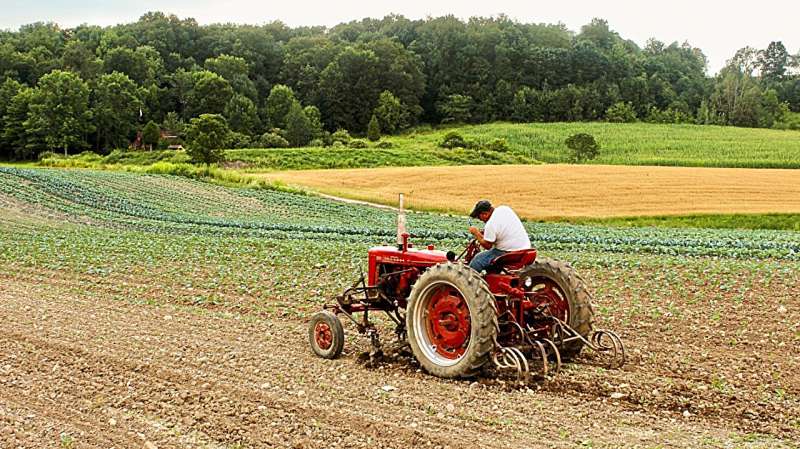Researchers from Cornell University have revealed that eco-friendly agricultural practices may be more accessible for farmers than previously thought. A study published on November 13, 2025, in the journal Agriculture and Human Values, indicates that misconceptions about labor requirements are a significant barrier to the adoption of these sustainable methods.
The research involved a survey of over 500 fruit and vegetable farmers across the United States and in-depth interviews with nearly 50 farmers in New York and California. Farmers identified three main concerns—cost, time, and complexity—as the primary obstacles to implementing seven out of eight agroecological practices. These practices include crop rotation, composting, reduced tillage, and the use of cover crops, which leverage ecological processes to enhance farming productivity while benefiting the environment.
According to Rachel Bezner Kerr, a professor of global development at Cornell University and a co-author of the study, many farmers believe that adopting these practices is not viable in the U.S. context. She emphasized, “This paper really shows that actually it is possible for American farmers to use these practices and that the barriers are lower than they may have thought.”
The study highlights the necessity for increased peer-to-peer knowledge sharing among farmers to dispel myths surrounding agroecological practices. Jeff Liebert, the lead author and a researcher now at The University of British Columbia, pointed out that successful agroecology worldwide often relies on strong social networks, which are currently underdeveloped in the U.S. “Agroecology is really about context-specific, place-based solutions,” he noted, indicating the potential for farmer-led movements to foster these practices.
The eight practices surveyed—compost use, reduced tillage, intercropping, flower strips, crop rotations, cover cropping, and border plantings—do require more intricate management. Still, the researchers found that they often pay for themselves through increased agricultural productivity. Additionally, these interventions support biodiversity, improve water and air quality, and reduce emissions, ultimately enhancing farms’ resilience to climate impacts.
“There’s robust scientific evidence that these practices can build resilience for farms to climate impacts,” Bezner Kerr remarked, referencing her experience with the United Nations’ Intergovernmental Panel on Climate Change. She emphasized the importance of incorporating these practices not only for societal benefit but also for farmers seeking stable incomes and consistent production.
The study also revealed that larger farms, which dominate U.S. farmland, lag in adopting these eco-friendly practices. Farmers operating large-scale operations reported intensified labor challenges, including worker shortages and pressures from state-specific minimum wage increases, leading many to favor mechanization over sustainable practices.
Liebert raised concerns about the long-term implications of this trend, stating, “If we replace humans with machines, it forecloses the potential pathway to farm work that’s really meaningful and dignified.” He highlighted the need for more dialogue around the impact of non-agricultural policies, which can complicate labor investments for farmers striving to meet market demands for affordable food.
Interviews with farmers often extended for hours, revealing their deep commitment to sustainable practices and their workers. Liebert observed, “I met many people who care a lot about feeding people and trying to protect their workers, but there are all of these structural factors that are out of their control.” His research sheds light on the complex landscape in which farmers navigate these decisions.
Addressing the labor challenges across different farm sizes could enhance efforts to promote an agroecological movement in the U.S. As the agricultural sector evolves, it is crucial to balance mechanization with sustainable practices to ensure the livelihood of farmers and the health of rural communities.
The findings of this study underscore the potential for eco-friendly practices to thrive in American agriculture, encouraging an approach that prioritizes both productivity and environmental stewardship.







